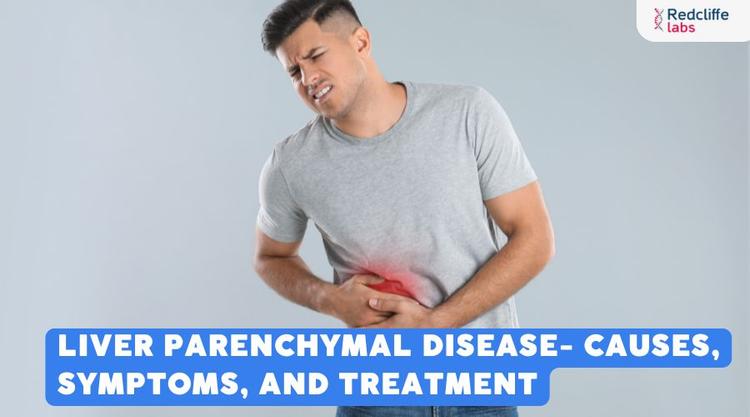Fatty Liver: 35% of Indians Suffer from Fatty Liver and Here's why Early Detection is Important

Medically Reviewed By
Dr Divya Rohra
Written By Dr. Ragiinii Sharma
on Mar 30, 2022
Last Edit Made By Dr. Ragiinii Sharma
on Jan 10, 2025

Fatty liver disease is a condition marked by the build-up of excess fats in the liver. The condition is of two types:
Alcoholic fatty liver disease – caused due to excessive alcohol consumption.
Non-alcoholic fatty liver disease – caused by environmental or genetic factors besides alcohol consumption.
Prof. (Dr.) Shiv Kumar Sarin, Padma Bhushan awardee, Head, Department of Hepatology & Director, Institute of Liver and Biliary Sciences (ILBS), during an ongoing live webinar, “Managing Liver Care,” said that around 35% of the Indian population suffers from fatty liver disease.
An initiative by Assocham, the webinar on Liver care, shed light and created awareness on the importance of liver health and ways to care for the liver by reducing risks of liver infections and liver disease in the population.
Shedding some light on the concern, Dr. Sarin further emphasized the issues surrounding the increasing rate of fatty liver disease in India and its relation with risks of kidney stones, diabetes, and incidence of cardiovascular complications in the patients.
Raising concerns surrounding fatty liver disease, Dr. Sarin says that the heavy deposition of lipids in the liver leads to excess insulin production by the pancreas, leading to risks of insulin resistance in the patients.
And, when a patient develops insulin resistance, the body starts exhibiting pre-diabetic symptoms. In addition, the excess lipids also enter the bloodstream, forming blockages in the arteries, further eliciting risks of heart attacks and strokes.
Dr. Rajesh Kesari, Founder, and Director Total Care Control, Delhi–NCR, blamed the modern-day lifestyle for these complications. Since the liver is the primary metabolic organ in the body, it experiences the brunt of a poor diet and a sedentary lifestyle. The excess fats in our diets lead to risks of hypertension and atherosclerosis in the Indian population.
Emphasizing the importance of liver functions, Dr. Sakshi Karkra, Head–Pediatric, Gastroenterology & Hepatology, Artemis Hospitals, Gurugram, says that the liver actively performs over 500 vital body functions.
From detoxification to optimizing the immune system, processing hemoglobin, promoting glycogen synthesis, etc., Dr. Karkra suggests that liver disease is an umbrella term that signifies sudden impacts on liver functions, be it due to genetic or acquired causes.
The common symptoms of fatty liver disease include fatigue, lack of focus and concentration, excessive nausea and vomiting, anxiety, headaches, irritability, and even yellowing of the skin in severe stages.
If detected early, liver disease or damage can be reversed. Even the liver can self-heal and reverse a certain percentage of the damage.
With such rising concerns, it isn’t surprising that the need for early detection of liver disease is a necessity. Here’s why:
Dr. Prateek Sharma, MD, gastroenterology, professor of medicine at the University of Kansas School of Medicine, Kansas City, highlighted the prevailing connection between fatty liver disease and obesity. He suggests that adapting to a healthier lifestyle with potent weight-loss strategies can prevent fatty liver disease from getting worse.
The primary concern with liver disease is that the symptoms don’t present in the initial stages of damage. The patients don't notice prevalent symptoms unless the condition has worsened beyond repair, leading to progressive liver damage and cirrhosis.
This is why obese individuals or people with poor diet and lacking activity in life should get routine liver function test and imaging to rule out possible complications. Early detection can prevent the damage from becoming severe.
Dr. Sharma further highlights that obese patients with fatty liver disease can prevent further progression by losing up to 10% of their body weight.
Also, patients with pre-existing liver disease should avoid alcohol at all costs. Drinking alcohol further worsens the condition and leads to risks of cirrhosis and further damage.
During a webinar, Prof. (Dr.) Shiv Kumar Sarin further explained that a healthy liver weighs between 1,200 to 1,500 grams, and only 5% of the total weight should be fat. If the percentage gets above 10%, it is regarded as fatty liver disease, leading to risks of inflammation, scarring, and liver cancer.
Early diagnosis of liver disease, both alcohol and non-alcohol-induced, can lead to quicker treatment and recovery. With correct diet and lifestyle changes, these prevalent damages to the liver can be reversed, thereby allowing the patients to live a healthy life.



